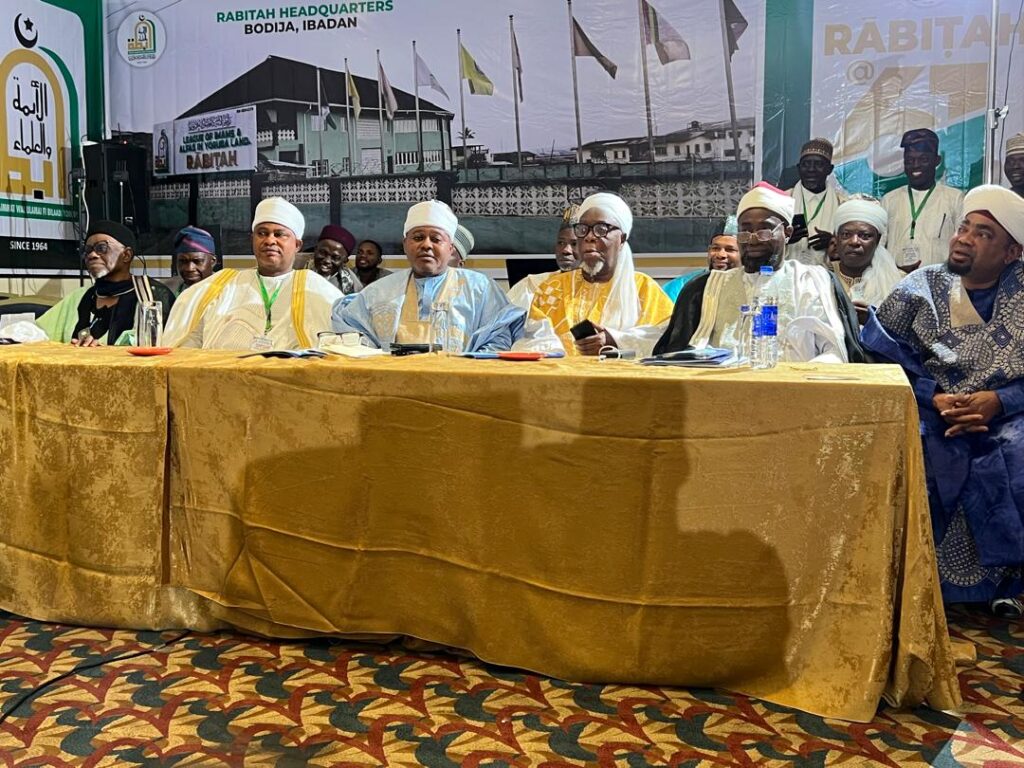Prominent Islamic clerics, political figures, and traditional rulers across Yorubaland have issued a strong call for national unity, urging Nigerians to reject attempts by foreign actors to use religion as a tool of division.
Speaking at a three-day conference held in Ikeja, Lagos, the leaders emphasised Nigeria’s long-standing legacy of peaceful coexistence and advised citizens to safeguard harmony ahead of the coming political season.
The event, organised by the League of Imams and Alfas in Yorubaland with the theme “Strengthening Peaceful Co-Existence Among Monarchs, Religious and Political Leaders,” drew dignitaries from all six southwestern states.
Representing President Bola Tinubu’s Chief of Staff, Femi Gbajabiamila, Hon. Lukman Oyewole Lawal warned that “international politics is trying to use religion to divide us as a nation.”
He praised the conference as a timely move to send a message of peace and unity.
“We have lived peacefully for many years, and the two dominant religions in Nigeria—Christianity and Islam—have always been on the same page. Do not use religion to further divide us or cause chaos in our land,” he added.
Lawal urged religious leaders not to allow themselves to be manipulated, but to continue promoting hope, unity, and good governance.
The Grand Mufti of Yorubaland, Sheikh AbdulRasaq AbdulAzeez, highlighted the core objectives of the conference, which include promoting peaceful coexistence, countering false international narratives of genocide in Nigeria, and fostering unity ahead of the 2027 elections.
“There is nothing like genocide in Nigeria; we have lived in peace and harmony for decades and centuries,” he stated.
Also speaking, the President of the League of Imams, Sheikh Jamiu Kewulere, described peace as a catalyst for development.
“As we approach 2027, we must remain united and elect intentional leaders who will build bridges,” he said.
In his keynote address, Professor Noah Lawal-Jinadu of Lagos State University stressed that Muslims are also victims of arbitrary killings and warned against divisive narratives designed to inflame hatred.
“These are the same tools used to create ISIS and Boko Haram—strategies deployed by foreign interests to steal resources and weaken sovereignty,” he warned.
He advised Islamic leaders to speak with one voice and offer courageous, wise counsel to political leaders.
Another speaker, Professor Lukman Awawiye, examined Islamic principles of leadership, calling on Nigerian leaders to lead by example.
He also urged a return of mosques to their traditional roles as centres of community orientation, training, and economic activity, not merely places of prayer.
















